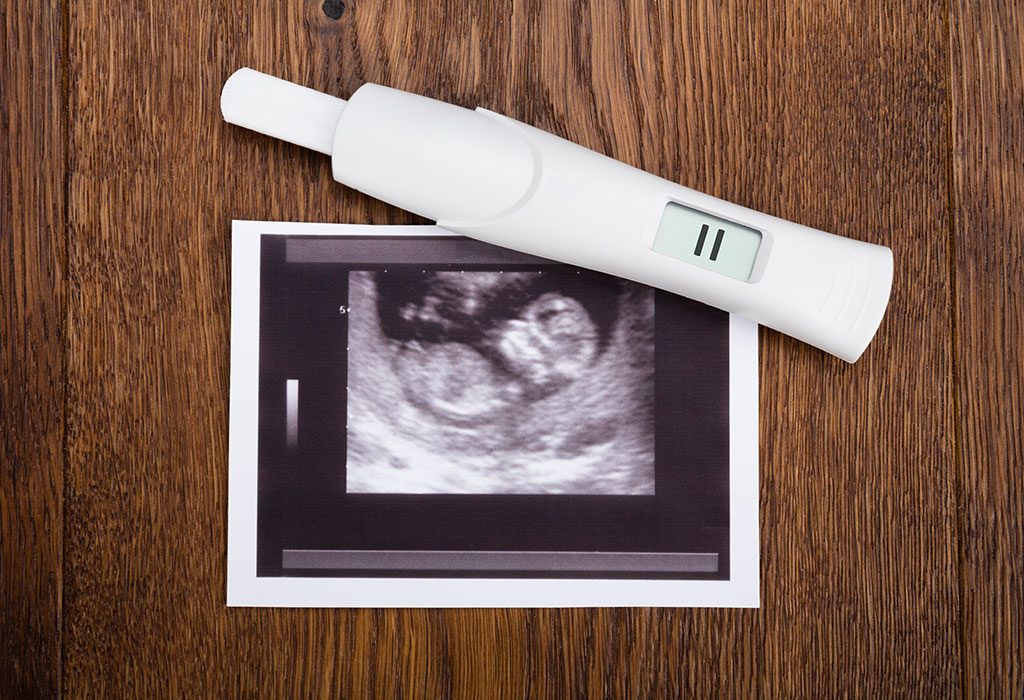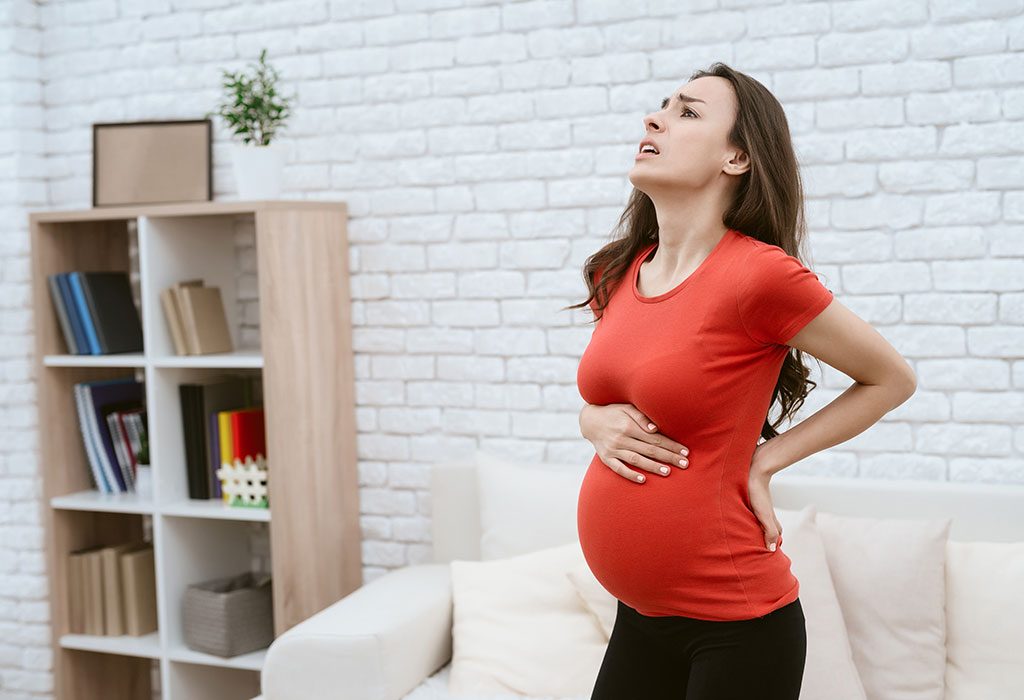In this Article
Counting from the first day of your last period, pregnancy lasts for about 40 weeks. Most women aren’t aware of it until the second month when they miss their period. Pregnancy stages, week by week are grouped into three trimesters when hormonal and bodily changes can be anticipated. Continue reading to understand how your body changes while your baby grows through stages of pregnancy month by month.
What are the Stages of Pregnancy
There are several stages during pregnancy. Know what they are:

Conception
This first stage of pregnancy begins with a sperm cell fertilizing the egg. To understand the process better, it can be divided into following steps:
- Every month a bunch of eggs called oocytes get ready for ovulation, which is the release of an egg from the ovary. Each egg develops inside a fluid-filled cyst called a follicle and only one of those follicles reaches maturation. The rest degenerate.
- During ovulation, the follicle breaks to release an egg from the ovary. The ruptured follicle develops into what’s called a corpus luteum which secretes the hormones progesterone and estrogen. Progesterone prompts the endometrial lining of the uterus to develop for a possible pregnancy.
- If the released egg meets a sperm and is fertilized by it, your baby’s genetic makeup reaches completion, including its sex. This fertilized egg within 24 hours of fertilization divides rapidly into many cells and moves slowly along the fallopian tube for about three days on its way to the uterus. It is now called a blastocyte.
- Its next task is to attach itself to the uterine wall, a process called implantation. The blastocyte sheds its protective covering and it makes contact with the uterine wall. Exchange of hormone helps it to attach itself. Some women at this point notice a slight bleeding called spotting for one or two days during the time of the implantation and it is one of the early stages of pregnancy symptoms. If successful, the uterine wall becomes thicker and the cervix gets sealed by a mucus plug marking the beginning of your pregnancy. If the blastocyte fails to implant, it naturally passes out of the body.
- In about three weeks, the blastocyte is in the form of a tiny ball and is now called an embryo with the baby’s first nerve cells forming. Skipping of your next period indicates pregnancy if it is confirmed by the urine test. The test looks for the pregnancy hormone human chorionic gonadotropin (hCG).
First Trimester
Conception is part of the first-trimester pregnancy stages. The first trimester spans from week one to twelve and brings many changes.
Changes in Mother’s Body
The first trimester brings about a lot of changes in your body with hormones affecting every organ and system. The changes trigger plenty of unpleasant symptoms with your periods stopping being a clear sign of pregnancy. The other symptoms include:
- Swollen and tender breasts and protruded nipples
- Exhaustion
- Morning sickness and upset stomach with or without vomiting
- Distaste for certain foods and craving for other foods
- Mood swings
- Frequent urination
- Constipation
- A headache
- Heartburn
- Weight gain or weight loss
As the body changes you might have to make changes to your routine to cope with it such as going to bed earlier or eating small and frequent meals. Symptoms usually disappear in time and some women may not feel them at all.
Changes in the Foetus
Month 1:
- In the first week, the blastocyte implants into the uterine wall and begins to multiply. The placenta begins forming to nourish the baby.
- Heartbeat starts around the 21st day and the nervous system with spinal cord and nerves and muscles begin developing by week four.
Month 2:
- At this point, it is an embryo and a fraction of an inch long.
- The circulatory system begins to form with the heart in place.
- Stomach, liver, and pancreas begin to form.
- The limb buds can be seen.
- Facial features begin to develop by the end of the month.
Month 3:
- Bones, muscles, fingers, toes, and teeth buds begin to develop. Post 8 weeks, it is called a foetus.
- The skin is transparent, eyelids are closed.
- Muscles and nerves continue to develop.
- By the end of the third month, the foetus is close to 10cm long and weighs around 28 grams.
Second Trimester
The second trimester is what most women find to be the easiest as their morning sickness and fatigue is past them and they start feeling good. Though, the changes to your body continue with the abdomen beginning to expand from week 13 to week 27.

Changes in Mother’s Body
- Body ache involving back, abdomen, thigh and groin pain
- Darkening of the skin around nipples
- Stretch marks on the skin of your breasts, abdomen, buttocks and thighs
- A visible line of skin starting from the belly button to pubic hairline
- Numbness or tingling hands; carpal tunnel syndrome
- Patches of dark skin on the forehead, cheeks, upper lip, and nose. Sometimes called the mask of pregnancy, they can appear on both sides of the face
- Swelling of face, fingers, and ankles
- Itching on the palms, abdomen, and feet
Changes in the Foetus
Month 4:
- Suckling action in the mouth
- Fingernails, eyebrows, and eyelashes are formed
- Skin appears to be wrinkled and fingerprints are evident
- The kidneys start functioning and produce urine
- It’s possible to identify the sex of the baby by an ultrasound scan
- Bowel movements commence and meconium is produced in the intestines
Month 5:
- The foetus is about 15 cms in length and weighs close to 250 grams
- Movements become more frequent
- A fine hair called lanugo appears on the skin along with a waxy coating called vernix to protect the fragile skin
Month 6:
- Baby responds to sound by moving or increasing the pulse. You may also notice jerks if they hiccup
- Bone marrow starts forming red blood cells by now
- The eyes begin to open and hair starts growing
- Genitals develop faster
- By the end of 6 months, the baby is close to 30 cm long and weighs nearly 900 grams
Third Trimester
Some of the discomforts of the second trimester may continue to the third. Added to that, the uterus applies pressure on the organs. Breathing might seem a little difficult and you’ll have the urge to go to the bathroom often.
Changes in Mother’s Body
- Shortness of breath and heartburn
- Tender breasts which might leak a watery fluid called colostrum
- Belly button sticks out
- Swelling of the face, fingers, and ankles
- Trouble sleeping
- Constipation and haemorrhoids
- Baby moving lower into the abdomen or “dropping”
- False contractions which might feel like labour
Changes in the Foetus
Month 7:
- A baby’s eyes open and close and respond to light from the outside. He/she can also hear and recognize voices
- Breathing motions begin although the lungs are still developing
- Skeleton is fully formed and starts stretching the limbs
- Kicks become forceful
- Baby grows about 35 cms long and weighs between 900 grams to 1.8Kg
Month 8:
- Gains weight quickly
- Bones become harder but the skull stays soft
- Reduced movements
- Measures 40 to 45 cm long and weighs close to 2.7Kg
Month 9:
- The organs are fully developed
- Measures 48 to 53 cm long and weighs close to 4 kilos
- Baby starts to move into an optimal position for labour
- Delivery can occur anywhere between 36 to 40 weeks
Labour
Labour is the last stage of pregnancy when you’re anticipating the birth of your child. Labour occurs in three stages:
- It begins with strong contractions that are periodic. Contractions become closer and longer while being felt for 60- 90 seconds, every two to three minutes. Your amniotic sac ruptures spilling the fluid and the cervix begins to dilate.
- Contractions become stronger and the cervix dilates to about 10 cms to make way for the baby. Along with contractions, you push the baby into the birthing canal and the head comes out first.
- The baby is born but the contractions continue to release the placenta. It would take about 15 – 20 minutes for the placenta to come out after the baby is born.
These labour stages apply to a normal delivery. In the case of a C section, however, an incision is made into the abdomen to remove the baby.
Pregnancy is a lifetime experience when the changes in your body are a wonderful reminder of your baby developing inside you.








